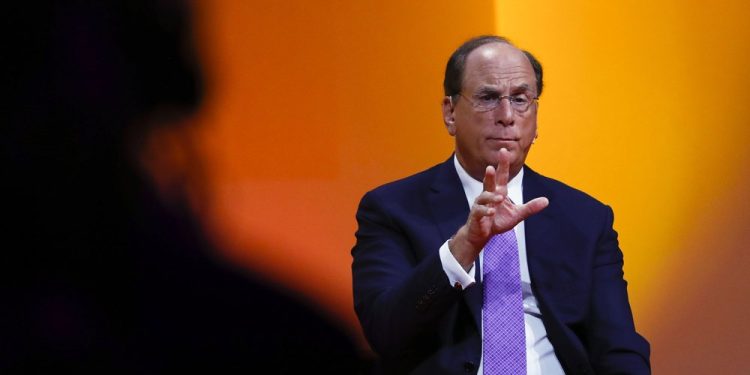STORY AT-A-GLANCE
- The PBS Frontline documentary “The Untouchables,” which originally aired in 2013, investigates the cause of the 2007-2009 financial crisis, and why Wall Street crooks escaped fraud charges related to the sale of bad mortgages
- Not one Wall Street executive was held accountable for this massive crisis, yet evidence suggests Wall Street executives with the willingness to defraud customers to pad their own bottom line were the cause of it all
- The case against Bear Stearns and JP Morgan, basically summed up the core of the entire 2008 credit crisis: Banking institutions intentionally sold securities they knew were bad
- The same criminal bankers are now intentionally destroying the global financial system in order to replace it with something even worse — social credit scores, digital identity and Central Banking Digital Coupons (CBDCs), which will give them the ability to control not only your individual finances but also everything else in your life
- The financial crisis of 2008 showed us how incompetent they are. So why would we accept the “new and improved” financial system they intend to roll out as soon as the current financial system is in shambles?
The PBS Frontline documentary above, “The Untouchables,” which originally aired in 2013, investigates the cause of the 2007-2009 financial crisis,1 and why Wall Street crooks escaped fraud charges related to the sale of bad mortgages. As explained by PBS:2
“Are Wall Street executives ‘too big to jail’? In … ‘The Untouchables,’ producer and correspondent Martin Smith … investigates why the U.S. Department of Justice failed to act on credible evidence that Wall Street knowingly packaged and sold toxic mortgage loans to investors, loans that brought the U.S. and world economies to the brink of collapse.
Through interviews with top prosecutors, government officials and industry whistleblowers, FRONTLINE reports allegations that Wall Street bankers ignored pervasive fraud when buying pools of mortgage loans.”
Historical Review
You might wonder why I would post a nearly 10-year-old documentary. It is because we can learn powerful lessons from our history. It is clear that all the bankers that were responsible for the financial trauma were never prosecuted. Well, you can bet your bottom dollar that we will have the same result when it comes to prosecuting those responsible for killing millions in the COVID pandemic.
So let’s dive into the history so you can learn. Below, I’ve also included a documentary called “All the Plenary’s Men,” which goes deeper into the question of why the Justice department didn’t hold anyone accountable or prosecute any of the big banks.
The financial crisis that began in 2007 and came to a head in 2008 wasn’t the result of short-term fraud. No, the scene was set years earlier with rock-bottom interest rates and lax mortgage lending standards and grew worse from there, as fraudsters started cashing in on what appeared to be free and easy money.3
Originally, the lowered interest rate was intended to boost the economy after the dot.com bubble. The end result, however, was the complete opposite. A housing bubble formed, and as all bubbles do, it eventually burst, leaving financial institutions holding trillions of dollars of worthless subprime mortgage investments — investments that had fraudulently been sold as top-notch low-risk instruments.
Deepening the disaster was the fact that the Securities and Exchange Commission in 2004 relaxed the net capital requirements for investment banks such as Goldman Sachs, Merrill Lynch, Lehman Brothers, Bear Stearns and Morgan Stanley, which allowed them to leverage their investments by as much as 40 times. As explained by Investopedia:4
“The Fed started raising rates in June 2004, and two years later the Federal funds rate had reached 5.25%, where it remained until August 2007. There were early signs of distress. By 2004, U.S. homeownership had peaked at 69.2%. Then, during early 2006, home prices started to fall.
This caused real hardship to many Americans. Their homes were worth less than they paid for them. They couldn’t sell their houses without owing money to their lenders. If they had adjustable-rate mortgages, their costs were going up as their homes’ values were going down.
The most vulnerable subprime borrowers were stuck with mortgages they couldn’t afford in the first place. As 2007 got underway, one subprime lender after another filed for bankruptcy.
During February and March, more than 25 subprime lenders went under. In April, New Century Financial, which specialized in sub-prime lending, filed for bankruptcy and laid off half of its workforce.
By June, Bear Stearns stopped redemptions in two of its hedge funds, prompting Merrill Lynch to seize $800 million in assets from the funds. Even these were small matters compared to what was to happen in the months ahead.
It became apparent by August 2007 that the financial markets could not solve the subprime crisis and that the problems were reverberating well beyond the U.S. borders.”
The interbank market froze as banks around the world started reporting liquidity problems and major losses from bad subprime investments, central banks started pumping out billions of dollars in loans to prop up the credit markets, recession hit, stock markets crumbled, investment banks collapsed and were sold for pennies on the dollar, and home lenders like Fannie Mae and Freddie Mac were seized by the U.S. government.
The “remedy” to this epic failure was the Wall Street bailout, where many banks were given billions of dollars to stay afloat. Government basically bought the toxic assets (with taxpayer dollars, of course) to save banks deemed “too big to fail,” while an estimated 3.8 million Americans were forced into foreclosure5 and lost their life savings to boot.
Who’s to Blame?
There’s plenty of blame to go around for the 2008 financial collapse.6 Economists like to blame lax mortgage lending policies that permitted people to borrow more than they could afford.
Others have laid blame at the feet of predatory lenders, who charmed people into thinking they could afford higher mortgages than were really feasible, and investment “experts” who bundled the bad mortgages and resold them to investors as low-risk instruments. Bankers, at the time, admitted they had miscalculated the risks.
The agencies that signed off on the toxic mortgage bundles, giving them top investment ratings, also clearly played a role, as did individual investors, who either didn’t do their due diligence or simply resold what they knew was bad debt to others.
And then there’s Wall Street. Frontline interviews make it clear that at the heart of this bubble were greedy Wall Street executives with the willingness to defraud customers to pad their own bottom line.
Was Fraud Committed?
The question asked by Frontline is whether actual fraud was committed. Not one Wall Street executive was held accountable for this massive crisis. Is it really possible that not a single one of them committed provable fraud? And if they did, why weren’t they held to account?
David Boies, founder of the New York City law firm Boies, Schiller & Flexner, told Frontline correspondent Martin Smith that substantial prosecutions were indeed expected at the time. Within the halls of Washington D.C., calls for prosecution were also loud and clear.
Former Sen. Ted Kaufman, D-Del., was among those insisting that those responsible for defrauding hardworking Americans had to be identified, prosecuted and thrown in jail.
As noted by Kaufman, the financial system of the world, not just the U.S., was nearly destroyed, and “that doesn’t happen if there isn’t something bad going on.” Ultimately, however, no culprits were identified. No one was held responsible. No one went to jail. And one of the reasons for this, according to the U.S. Justice Department, was because “greed is not necessarily a criminal offense.”
As noted by Frontline, in order to go after Wall Street, investors needed a) proof of what the bankers knew, and b) that they had criminal intent. Frontline goes on to interview several due diligence underwriters, people who do the actual number crunching to assess the risk of buying a given loan portfolio, and determine if the underwritings — the loans — are legitimate.
So, if a Wall Street company wants to buy a portfolio of loans, they will hire due diligence underwriters to tell them whether or not a particular portfolio is a safe investment by manually reviewing a sampling of loans within that pool.
In the years leading up to the housing crash, due diligence underwriters were instructed, allegedly by their supervisors, to not scrutinize loans too deeply or question what ought to have been questioned, such as whether a waitress could really be making the $12,000 a month needed to afford the loan. Even in cases where outright fraud was suspected on a mortgage application, the due diligence underwriters were not allowed to call it that.
Fraudulent Activity Ignored/Accepted at the Highest Levels
Some higher-ups were also noticing problems. Richard Bowen, former vice president and a chief underwriter at Citigroup between 2002 and 2009, became concerned when he discovered that 60% of the mortgage loans purchased by Citigroup failed to meet its lending policy. By the end, the rate of defective mortgages at Citigroup exceeded 80%.
Bowen tried to alert senior leadership within Citigroup to the fact that the company was at great risk, but no one seemed to care. He was later demoted and ended up resigning. Citigroup eventually pleaded guilty in a civil fraud suit for failing to perform basic due diligence from 2004 until 2010.
Frontline goes on to review some of the many Congressional hearings held, and what was discovered by investigators. Importantly, one Financial Crisis Inquiry Report revealed findings from an investigation into a due diligence company called Clayton Holdings, which had performed due diligence for some two dozen banks that were buying mortgages, packaging them and selling them to investors.
Even though Clayton Holdings was finding that a substantial portion of each bank’s holdings failed to meet the bank’s standards for buying those loans, in each case, the banks accepted the loans and sold them to investors. What’s worse, they told investors these were prime, low-risk investments, and then bet against them with short positions. How is that not criminal conduct?
The findings were referred to the Justice Department, but aside from a few fines, no charges were brought. No doubt, criminal intent can be very difficult to prove, but many still feel the Justice Department simply didn’t try hard enough.
Bear Stearns Lawsuit Sums Up Credit Crisis Fraud Scheme
That doesn’t mean we cannot figure out what actually happened. Nick Verbitsky, a documentary filmmaker, had conducted several interviews with Bear Stearns’ EMC Mortgage employees, who in great detail explained how the company was defrauding its clients.
After reviewing several hours of these tapes, investigative journalist Teri Buhl wrote an article about it. Shortly thereafter, she was contacted by lawyers with Patterson Belknap Webb & Tyler, who represented a group of mortgage insurers called Monolines. They were already working on a fraud case against Bear Stearns and JP Morgan Chase, and wanted the whistleblowers to help them build their case.
The case against Bear Stearns and JP Morgan basically summed up the core of the entire 2008 credit crisis, financial analyst Mark Palmer told Frontline. He believes the financial crisis was, at its core, the result of banking institutions intentionally selling bad mortgages. Palmer is also convinced there was sufficing evidence to, at bare minimum, indict many of the key players.
Finally, in 2012, the New York attorney general filed a civil case against Bear Stearns and JP Morgan, alleging fraud. His case was largely based on the work of other private law firms, including Patterson Belknap. The question is, why couldn’t the Justice Department get the job done?
The Same Crooks Are Sinking the Economy Again
No one in the top echelon was punished for their egregious malfeasance that led to the 2008 financial crisis. And now, they’re manifesting yet another crisis, even larger than the last. That’s what happens when you allow criminals to continue in their schemes without repercussions. They get emboldened, and the crimes get larger and larger.
We’re now at the point where banksters have self-selected themselves to rule the whole world, tossing notions of democracy, freedom and human dignity in the waste bin along the way. As noted by Dr. Robert Malone in a recent Substack article:7
“… the US taxpayers bailed out the large banks when they crashed the global economy during 2007-2008 … I did not get a bail out. You probably also just had to suck it up.
But the big banks worked with the (privately owned) Federal Reserve bank, US Government, and Blackrock and destroyed their competition (the savings and loan industry), small businesses all across the country, and decimated the finances of homeowners who had been enticed into multiple cycles of refinancing.
Meanwhile, these same big banks who were largely responsible for the economic catastrophe essentially got free money (paper fiat currency printed by the Federal Reserve and injected into the economy via the big banks, which is really just another form of taxation — by the privately owned Federal Reserve!)
And these are the same banks, managers and hedge funds who think that they have the wisdom, knowledge, and skills to manage the entire world.
And they apparently believe that they just need to be able to digitally track everyone’s behavior, purchases, political activities, bank accounts, and all other aspects of our lives so that they can properly manage us via social credit scores, ESG scores, etc.
These large banks and investment funds (Larry Fink/Blackrock, State Street, Vanguard etc.) seem to believe that if they have all of this individual level data and tracking capabilities on all of us, together with a centralized world digital currency, then they will be able to properly manage all of us.
So, the question. Who put the bankers in charge of the world? This is crazy. It must stop. They have repeatedly demonstrated their incompetence, hubris, arrogance and greed. Somehow, the power of the Billionaires, Privately Owned Central Banks, Massive ‘Investment/Hedge funds,’ and all of their cute little clubs and private societies needs to be curtailed or (preferably, in my opinion) destroyed.
We need to confront the truth which has been hidden behind all of this … The world has empowered monopolists (such as Bill Gates) and monopolies to capture far too much power and control. They need to be brought to heel. For the sake of all of us. For the sake of humanity. For the sake of our children, if nothing else.”
Polycrisis of Doom Ahead
The COVID pandemic has brought into clear view the strategy used by the globalist cabal. Bankers are key players in this cabal, but they’re not the only ones. They create crises to feed their own greed. The pandemic was just the last of many such crises.
But the financial crisis of 2008 also shows us just how incompetent they are. They didn’t have the situation under control then, and they don’t have it under control now. So why in the world would we accept the “new and improved” financial system they intend to roll out as soon as the current financial system is in complete shambles?
It’ll be far worse than the last. There can be no doubt about that, because it will not only grant them complete control over your personal finances, it’ll also give them complete control over every other area of your life. This will occur after the Great Reset in the next two to three years once the central banks implement their CBDCs (central bank digital currencies).
Right now, we’re facing an unprecedented series of crises, as outlined in “Economy Expert Explains the Impending Polycrisis of Doom.” All of these crises — inflation, food shortages, energy shortages, impending war escalation — were created for the purpose of hiding the greatest wealth transfer the world has ever seen.
Once that wealth transfer is complete, you will “own nothing,” as predicted by the World Economic Forum, and be under the complete control of the greediest and fiscally most incompetent humans on planet earth. There’s simply no scenario in which these individuals will be able to create the utopia they claim to promote, and the sooner everyone realizes that, the sooner we can replace them with people who actually have the skills necessary to rebuild what they’ve destroyed.
How Bankers Plan to Force Us Into The Great Reset
Several countries have intentionally crippled and/or entirely dismantled their energy sectors, including Germany, France and the U.S., in the name of the Green Agenda. As a result, Deutsche Bank now warns Germans will need to burn firewood to survive the coming winter,8 and France is turning off street lights to reduce energy consumption.9
At this point, it’s important to realize that the Green Agenda is just another tool to force us into The Great Reset, just like the pandemic was used to weaponize Big Pharma in preparation for a global biosecurity network.
As explained by Town Hall, one of the ways big banks are plotting to force this transition is by implementing Environmental, Social and Governance (ESG) scores to businesses and individual investment accounts alike:10
“If banks are allowed to collectively decide to stop financing any group of people they want, based not on financial concerns but ideological considerations, then banks and their Great Reset allies will have, in effect, near-total control over society — especially if they begin to tie lending decisions to a vast ESG system …
The time has come for a massive populist revolt against the Great Reset, one that will hopefully have the same success as the grassroots movement against Common Core did under the Obama administration. The fate of the free world may very well depend on it.”
Understand the Game in Britain
Meanwhile, leadership in the U.K. is crumbling, and the World Economic Forum is fighting to get one of its members to take former Prime Minister Boris Johnson’s place. As noted by Maajid Nawaz,11 the British leadership contest is all about securing a leader who will usher in The Great Reset:
“Division has been sown after Brexit. Civil norms has [sic] been crushed after COVID. The ‘means of production’ have been disrupted after war in Ukraine. What comes next is the purpose they all served: The Great Reset.
Combined, these cumulative crises of monumental fiscal suicide, unprecedented supply chain disruption and food and energy shortages are in danger of causing the collapse of the global financial system, sparking truly unprecedented global uprisings. In fact, we are already witnessing this.
The collapse of the global financial system now appears inevitable. It actually collapsed in 2008. What has proceeded since then is merely the execution of a carefully planned, if not vicious, controlled demolition.
The demolition is orchestrated by World Economic Forum (WEF) establishment globalists so that their own controlled opposition may steer this global reset towards further centralized tyranny, as opposed to allowing it to enable decentralized democracy.
Popular resistance will now be used as a pretext to clamp down and suspend liberty by rolling out militarized forces to subjugate the very conveniently rebelling citizens.
This is how the global financial establishment seeks to ride the current global revolution in order to retain their power. We are at the end of a natural generational cycle: a historic turning. We are witnessing the ‘reset’ part of Klaus Schwab’s Great Reset. They have told us what they plan to do. After the reset they will seek to ‘Build Back Better’ in order to create their New World Order …
The above is the proper context for why the globalist British establishment turned against their own frontman and PM Boris Johnson.
This allows for the impression that those responsible for any past injustices during the Brexit, COVID and Ukraine war chapters appear to be sufficiently scapegoated in the eyes of the hapless public, while the next chapter of their desired global transition to technocracy is ushered in under our very noses by a new, fresh-faced acolyte …
The globalists’ next chapter requires an unscathed PM — alive in the public imagination for handing out free cash to the public — who is prepared to steer the collapse of the financial system and usher in global banking’s planned technocracy: social credit scores and Central Banking Digital Coupons (CBDCs).”
The central banking cabal and its many allies have infiltrated governments and institutions across the world for many decades, slowly turning the systems against us. We are now in the final chapter of their technocratic takeover. Everything points to them succeeding.
What You Can Do
However, there is a wild card: The human spirit and its inherent love of freedom. If enough of us refuse to accept the “new world” these crooks are proposing, we may still have a chance to turn this disaster around and truly rebuild something better.
It is important that you continue to prepare for the inevitable financial catastrophe and become as independent and resilient as possible. This year I have offered many articles on how you can prepare, and you can look them up on my Substack site.
It will also be vital to become as healthy as possible. A recent study showed that 93% of U.S. adults are metabolically unhealthy, and those stats were 4 years old. It is likely that number is now over 95%. You want to be the 1 person in 20 that is healthy. Make it your goal to be in that group.
This is so important that I am in the process of devising a poll to find out what that percentage is for our subscribers. It would be a bit more accurate as I would include metrics like vitamin D levels, sun exposure and exercise. So, start getting metabolically fit now if you aren’t so you can participate in the upcoming poll.
- 1, 4, 5, 6 Investopedia May 17, 2022
- 2 YouTube Frontline February 22, 2022
- 3 the Balance August 28, 2020
- 7 RW Malone Substack July 19, 2022
- 8 MSN July 14, 2022
- 9 The Counter Signal July 15, 2022
- 10 Town Hall March 30, 2021
- 11 Maajid Nawaz Substack July 14, 2022








“Who is behind the economic collapse?”
Um, who owns and operates our central bank?
Ahh…JEWS.
Oh, by the way, “Dr. Mercola”, VIRUSES ARE NOT REAL.
If you think viruses aren’t real, then swallow a test tube containing Ebola and let us know how you feel in a couple of weeks.
Who Is Behind the Economic Collapse? Dems, with the connivance of China. After all, you can’t take over a prosperous, well-fed country as easily as a needy, starving one. Dems think they will control us forever, whereas China knows the Dems will merely be their sock puppets. For proof, look at the entire Biden family: Owned completely by China and required to do their bidding, not our country’s.
Who is behind the economic collapse? The globalist one world government elites/World Economic Forum/international banking cartels, which are controlled by billionaires who strive to destroy the western middle class and force the world’s nations into an empire headed by a man who the Bible calls ‘The Antichrist’. The power behind the Antichrist is none other than Satan.
I would be careful about using PBS’s Frontline as a major source. More blame for the 2008 economic collapse should pe placed on the government policies that were strong arming lenders into making bad loans.
To a health doctor everybody is sick, to a banker everybody needs a mortgage, to a general everybody needs a war, to a politician everything is broken and on and on……
Can’t they leave us alone?
This all sounds like what the Bible says about the mark of the beast. Literally, a person must accept this mark or starve to death from being unable to buy anything, especially food.